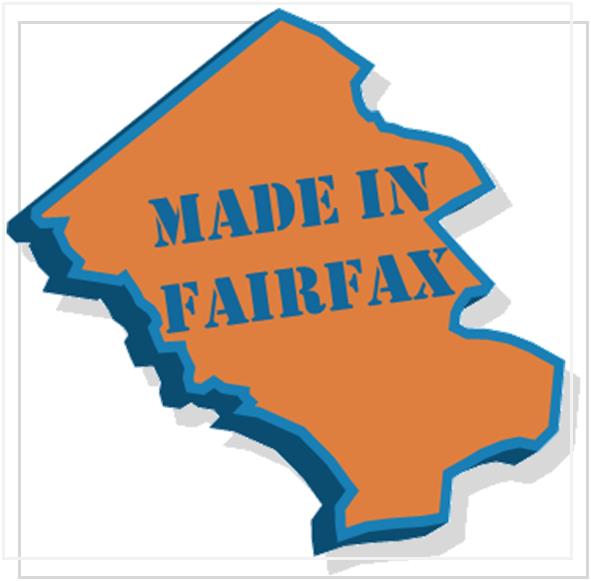
Made in Fairfax
Fairfax County Seeks to Boost Local Artisan Manufacturing
To expand eco nomic activity and build vibrant community centers, Fairfax County has adopted new zoning rules for small scale production businesses to enhance the County’s commercial areas. The law greatly expands the areas where artisan manufacturers can set up shop.
nomic activity and build vibrant community centers, Fairfax County has adopted new zoning rules for small scale production businesses to enhance the County’s commercial areas. The law greatly expands the areas where artisan manufacturers can set up shop.
Technological changes and consumer market preferences for locally-made and artisan products – from textiles, hardware, woodworking, and metalworking to breweries and local food production – have enabled small producers to competitively operate in traditionally non-industrial areas, such as retail and commercial centers.
The Made in Fairfax Initiative will be studying the most appropriate locations for this kind of small-scale production. Based on findings and public input, the County anticipates that it might update its land use and zoning rules to accommodate these kinds of artisan businesses.
With brick and mortar retailers under siege by online powerhouse giants, expansion of traditional retail is slowing dramatically along with the tax revenue they produce. The county is turning towards artisan manufacturing as a way to fill vacant commercial space no longer desired by traditional retail, while enlivening older commercial areas with new activities, local enterprise, and tax revenue.
Other localities, such as the cities of Falls Church and Alexandria, have implemented plans long ago and are already attracting numerous small brewers, whiskey makers, and artisan craftsmen in any number of disciplines.
Throughout the US, changes in technology and consumer tastes have made it possible for smaller-scale manufacturing to make a come back in urban areas. With the 3-D printer and computer controlled machine tools, factory space is dramatically shrinking while providing far more environmentally friendly manufacturing facilities.
Doug Loescher, a program manager for Fairfax County, commented that, “We’re looking at those types of businesses that are cleaner, quieter and more community friendly, and therefore would be good neighbors in mixed use areas. We recognize the potential for small-scale production businesses to enhance the character and identity of commercial centers and to create a more vibrant atmosphere with more choices for shoppers.”
County leaders claim to see artisan manufacturing as a way to grow and diversify the economy. While many equate manufacturing with large factories, 42 percent of manufacturers employ four people or less, according to the U.S. Census Bureau. In general, small businesses are responsible for two out of three new jobs created. The greatest challenge for a renewal in urban small scale manufacturing is the cost of real estate and the cost to refit interiors of leased space.
Unknown to many potential business owners and the public in general is that property owners in retail centers do not provide the interior buildout, interior insurance, utilities, or signage. Start up costs are high, even if square footage is small. Some small scale manufacturers generate high sales revenue allowing for start-up and operating costs. Others never will. Property owners often find leaving a space empty is financially more responsible than leasing at rock bottom prices. Certain uses create too high an insurance cost for the building owners who insure certain aspects of the property and building exterior. Shopping Centers are also concerned with providing a cross shopping experience for their existing tenants. Some uses would not benefit the center as a whole.
In Fairfax County, there are approximately 125 small-scale producers, ranging from 3D printing to precision parts to organic juice making. It is also worthy of note that consumer surveys indicate that customers are fed up with many mass manufactured products carried in store after store after store. They are instead excited with a variety of original offerings that can only be achieved by small scale manufacturers.
Previously, craft manufacturing was only allowed in industrial districts, except for craft breweries and distilleries. Now, these producers will be allowed in most commercial and mixed-use districts, from Annandale and Richmond Highway to Tysons and Reston. The new rules define small-scale production broadly to include the entire manufacturing process from design to production to packaging.
The rules also allow these makers to offer retail sales, training and education.Small manufacturers would be limited in size to 6,000 to 10,000 square feet, depending on the zoning district where they’re located. However, most craft manufacturing businesses are less than 5,000 square feet.
The new regulations also include restrictions to ensure these small businesses are good neighbors, such as requiring production and storage to be inside to prevent noise or odors.
The zoning regulations require these manufacturers in commercial or mixed-use districts to offer retail sales, tours, classes or other direct interaction with the public.
For more information about the zoning change and suggestions on where to locate a small manufacturing business, contact Elizabeth Hagg at Fairfax County's Office of Community Revitalization Elizabeth.Hagg@fairfaxcounty.gov
(Copyright © 2012 Annandale Chamber of Commerce. All rights reserved. (Photographs & images, on this page, and on this website, are not available for use by other publications, blogs, individuals, websites, or social media sites.)
Copyright 2012 Annandale Chamber of Commerce. All rights reserved. Privacy Policy
